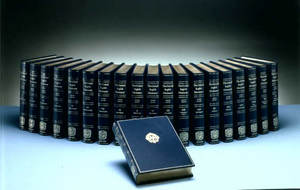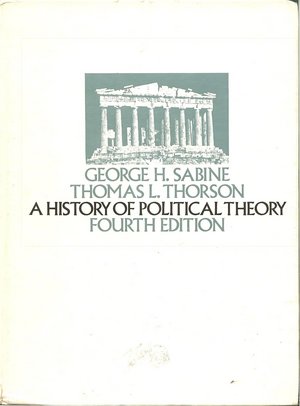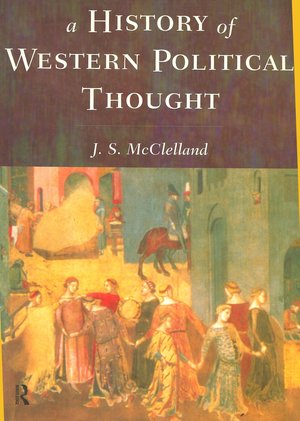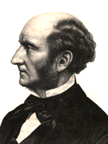Tarah asks, “I was wondering what qualified a political theorist as being one that is sufficiently noteworthy for you to write about?”
Gentle reader, you should know, and you do know this if you know me, that I leave little to chance. Since the blog needs posts to be fun and interesting (and it is fun and interesting, Right!?) I tell students who ask favours of me that they can do me a favour by reading the blog now and then, and posting a comment. Thus do I conscript you.
On the entry on the canon of political theory conscriptee Tarah wrote, “I was wondering what qualified a political theorist as being one that is sufficiently noteworthy for you to write about?” Aha!
That’s a good question (=df the chance for me to wax on about political theory). Let’s change the emphasis in the question away from your humble scribe to the canon of political theory, and, as is usually a good idea, let’s start with definition. What is a ‘canon?’ Well if it had two “nn’s” it would make a noise. With a single “n” it refers to a body of work. The Oxford English Dictionary 
on-line offers this definition “4. The collection or list of books of the Bible accepted by the Christian Church as genuine and inspired. Also transf., any set of sacred books; also, those writings of a secular author accepted as authentic.” The canon of political theory is the profane (they cannot be sacred so they must be worldly, or profane) books of political theory. I conducted a Google
experiment by typing into the search box ‘canon of political theory.’ “What did I get back,” I hear you ask? Hits were 1,570 and many of them from this very blog! Amazing. But when I deleted it more and 1,450 remained. Conclusion? A great many others use the term, too. Ah ha, I am not alone. I knew that but I know you sceptical readers need to be convinced. The sources were varied, learned journal articles from JSTOR an electronic provider of learned journals), lecture notes from MIT, book reviews in the New York Times, and so on. Yes, you pedants, I know about Google Scholar 
and I tried that, too, with 114 hits.
The canon of political theory is a set of totemic texts that in an earlier entry I compared to the monoliths found by the apes at the start of “2001: A Space Odyssey (1968)” against which we political theorists have defined ourselves for years. Of course the word theory (see my entry in January 2007 on “The very word theory” to get the straight juice on the etymology) is used and misused in a many ways. Often it is code for the incomprehensible, the nonsensical, the data-free, and illogical, which is not confined to self-proclaimed Po-Mo’s (Post Modernists for those that need spoon feeding) but it is conspicuous in those quarters. The unofficial compromise in political science is to refer to the “History of Political Theory” limiting the canon to that archaic and seemingly harmless domain. Thus the recently published Oxford Handbook of Political Theory has one fine chapter by James Farr on the history of political theory which mentions Plato and the crew, and that is only place in the 882 pages: confined to one measly chapter. But of course we denizens of this world know that Plato, Aristotle, and their kind live for the ages and not just in the past, as is implied in that word “history.” They will not be confined to a single chapter however much editors may feel the need to do so, and I confidently predict when all trace of the Oxford Handbook of Political Theory and along with most of the other alleged theorist mentioned in it (my review of this book will appear in the Australian Journal of Political Science later this year – it is not too late to reserve your copy at a library near you) have passed into stardust (from whence we all come and go) as fashions change, Plato and the crew will still be read for wisdom about life and not just for antiquarian interest. One only learns this by a long, close, and humble association with these masters but I have given a number of examples in earlier posts, and if you are good and keep reading, I will offer more as we go. Be good! That means re-reading and reading the original texts and not just reading about them. “Humble” means doing this reading to learn not just what is said but why it was said, and hardest of all, why it might be true however odd and different it seems to our sensibilities today.
Yes, all this is fine, but Jackson the point is? Any textbook on the history of political theory goes a long way to revealing the canon because the author (s) or editor(s) had to decide what to include and what not, and how much. The invariably focus on a small set of theorists. From one text to another, from one century to another, from one country to another in the Western World they focus on pretty much the same set. Ah ha, they do this because they conspire together in a secret clique! No, rather they do so because the major works by these writers live-and-breath in a way that the major works by others do not. One can easily see why Plato is pre-eminent if one reads a work by that other student of Socrates from whom we have extant works, Xenophon. His works are pedestrian, poorly written, and – well, they are boring in way that no one can say the allegory of the cave or the myth of Er in Plato are boring. To see Hobbes’s greatness one only needs to read James Harrington’s Oceana. I have supervised students writing theses on Harrington and so I have had to read it more than once. Try Wikipedia on him if you must http://en.wikipedia.org/wiki/James_Harrington
Niccólo Machiavelli is one of many who wrote books to guide princes, but his alone marches on its intrinsic merits, not any conspiracy among Italophiles, though no doubt some of the uninitiated assume that. His work is imaginative, bold, exciting, suspenseful, and most of all elegant in expression; he is so quotable that his true message is often lost when a quotation is taken out of context.
The canon defines itself, and is ratified in the judgement successive editors and authors have made in textbooks on the history of political theory from George Sabine to Jim McClelland. 

It blurs when we consider enormous intellects who only touched on politics a bit, like Georg Hegel. It blurs in another sense, because some of these masters had a complete philosophy that included metaphysics, an ethics, and also a political theory. Plato and Thomas Hobbes are both examples. While others do not have a metaphysics or ethics, say Jean Jacques Rousseau.
Stefan Collini says that the history of political theory emerged as a course of study in 19th Century England thanks to the remarkable influence of John Stuart Mill. Mill, for those who don’t know, but wait, there is no one who does not know who John Stuart Mill was, well at least there is no one who does not know who John Stuart Mill was that I want to communicate with. So there! Mill did not attend a university; home education was good enough for him. He was never a member of a university, honorary or otherwise, no honorary degrees for him. Yet he influenced the greater part of educated Britain in the Victorian era through his writing (reviews, translations, and books) and also his testimony before parliamentary committees on merit appointment in the public service, public health, education, franchise for women, and the like. His books are classic, especially that strangely neglected tome, Considerations on Representative Government (1863) but his parliamentary testimony is astounding for being terse, insightful, penetrating, and … well, impressive. If ever anyone has lived the life of the philosopher-king it is John Stuart Mill. (Wow! That’s it. That is what I should write about JSM [I have termed him thus for years without his knowledge], a philosopher-king incarnate! Watch this space. Writing of John Stuart Mill a few days after Mill’s death, Henry Sidgwick claimed, “I should say that from about 1860-65 or thereabouts he ruled England in the region of thought as very few men ever did: I do not expect to see anything like it again.” (Collini 1991, 178).
Mill’s 
influence was so general that his work became the subject of study at the British universities, which in those days were Oxford, Cambridge, Edinburgh and that is about it. In studying his books, readers found that they could be better understood if placed in the context of those who had gone before, like Rousseau, Hobbes, Locke, Plato, and Aristotle, and out of this tracing back came the history of political theory, according to Stefan Collini in That noble science of politics : a study in nineteenth-century intellectual history (Cambridge University Press, 1983).
To return to Tarah’s question, I did not create or discover the canon of political theory. It is just there and many others have seen it, too. I am happy to count myself among their number.

Your appreciation of political theory is heavy on its wisdom, light on its explanatory power. Right? So how does political theory differ from poetry?